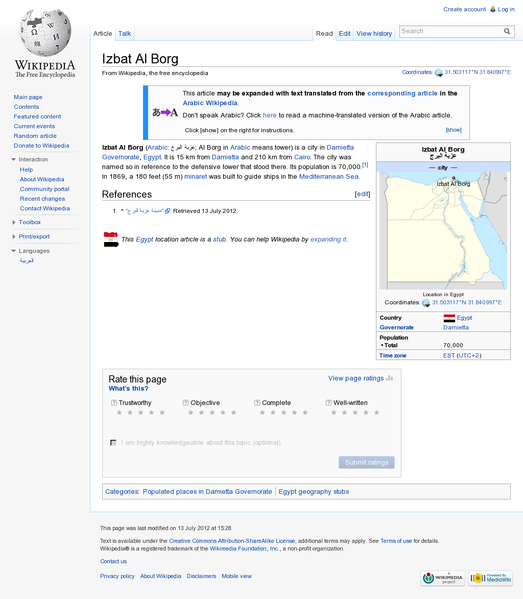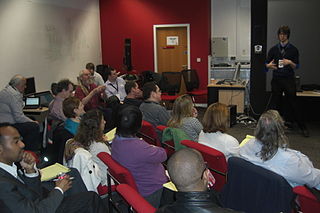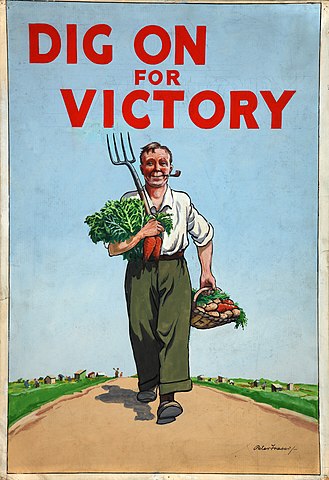 As around 1,000 international Wikimedians gathered in Washington, D.C, for Wikimania 2012, an historic landmark was reached today as the English language Wikipedia recorded its 4 millionth article just eleven years after its creation.
As around 1,000 international Wikimedians gathered in Washington, D.C, for Wikimania 2012, an historic landmark was reached today as the English language Wikipedia recorded its 4 millionth article just eleven years after its creation.It’s taken a huge, ongoing collaborative effort to reach this point and everyone involved in the project can feel a warm glow of satisfaction.
The four-millionth article was Izbat Al Borg, a short article about a city in Egypt. The article was created by Mohammed Farag, an editor from Alexandria, Egypt, who edits under the username User:Meno25. This article reflects the global nature of the site’s content, and a lot of potential remains for new articles covering countries like Egypt, which are currently under-represented on the English Wikipedia – as has been shown by Mark Graham’s work at the Oxford Internet Institute studying the global distribution of Wikipedia articles.
In the run-up to the 4 millionth article, User:Dr Blofeld created a long series of articles expanding Wikipedia’s coverage of Turkish villages. He is one of Wikipedia’s biggest contributors, and has made over 300,000 edits to articles. On his talk page, he explained “I rarely ever create “sub stubs” anymore, but today feels right to create a few thousand missing Turkish village stubs as a one off as 4 million articles approach. If we think long term on Wikipedia then it’s at least working towards something more productive. A true encyclopedia would have articles on all of them anyway.”
Other articles created around the 4 millionth include articles on highways in Idaho, such as Idaho State Highway 48, the Siersza Power Station in Poland, Albert C. Baker, an American judge from the early 20th century and Intelsat 605, a satellite launched in 1991.
Past milestones have included 1 million articles (Jordanhill railway station) on March 1, 2006, 2 million articles (El Hormiguero) on September 13, 2007 and 3 million articles (Beate Eriksen) on August 17, 2009.
The edits continue as Wikipedians pursue their shared mission of making the sum total of human knowledge available to everyone, everywhere, for free. Wikipedia exists in over 270 different languages, which have a combined total of over 23 million articles – but there is still quite a way to go before articles on all topics exist in every single human language!















